She meets Esther Lape and Elizabeth Read, and becomes very involved in the women’s movement, and then in the peace movement. And ironically, the years of her greatest despair become also the years of her great liberation.
BLANCHE WIESEN COOKAnd in her [Eleanor Roosevelt] letters, she writes the most, you know, fanciful letters: when we are together, and when we are reunited, and you know,
More Blanche Wiesen Cook Quotes
-





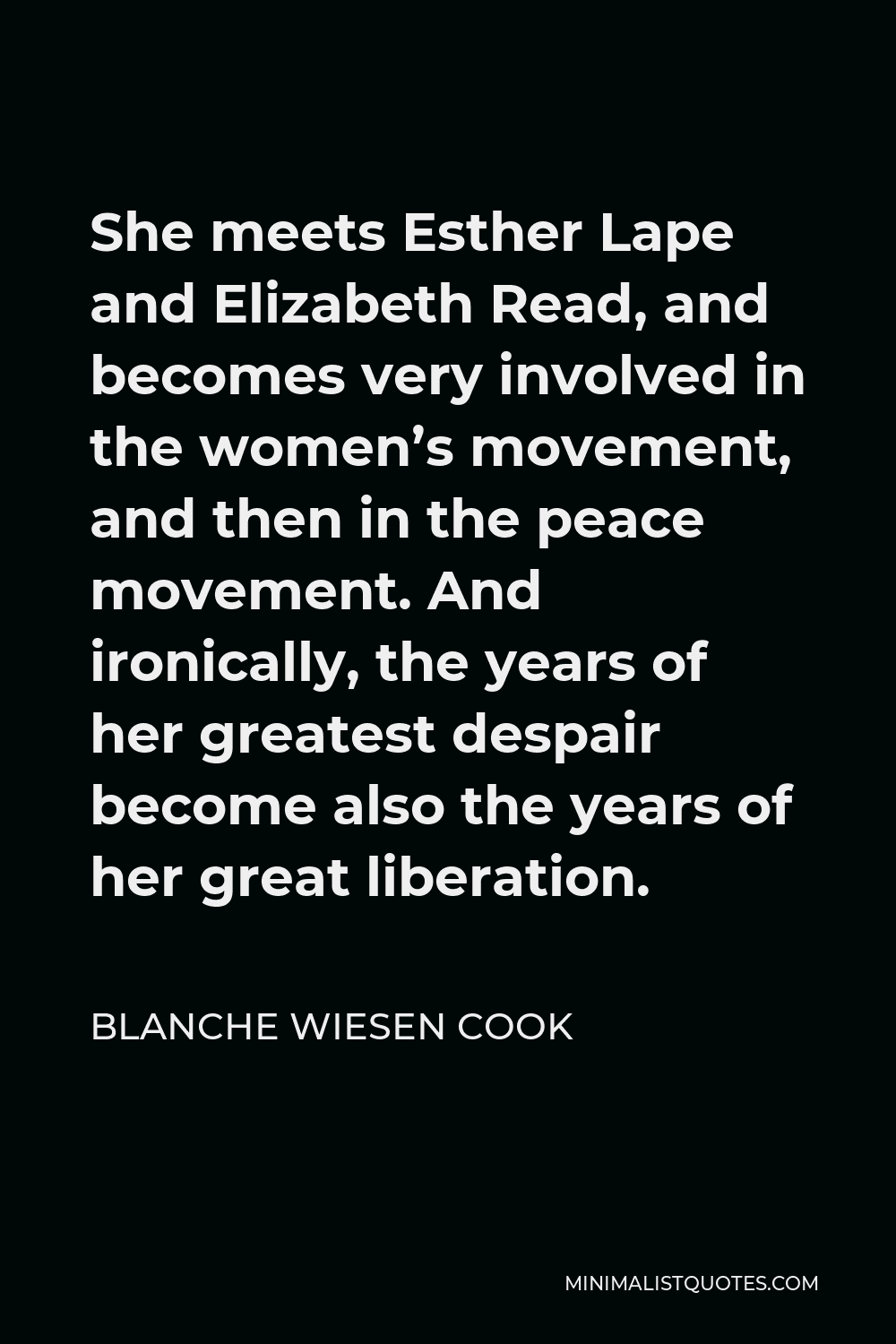
-





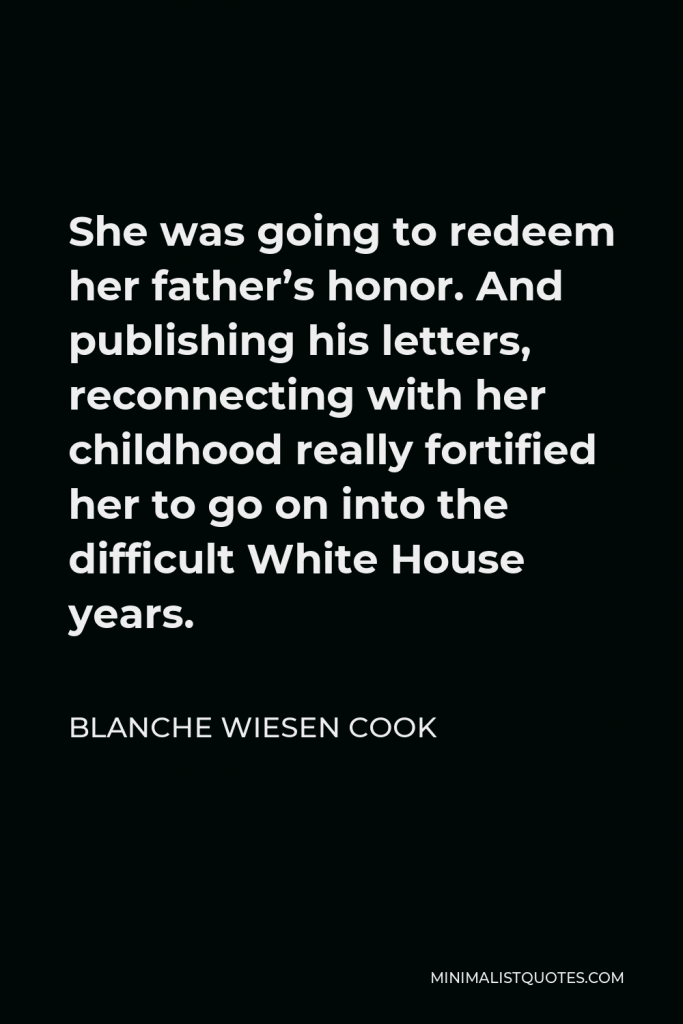

She was going to redeem her father’s honor. And publishing his letters, reconnecting with her childhood really fortified her to go on into the difficult White House years.
BLANCHE WIESEN COOK -





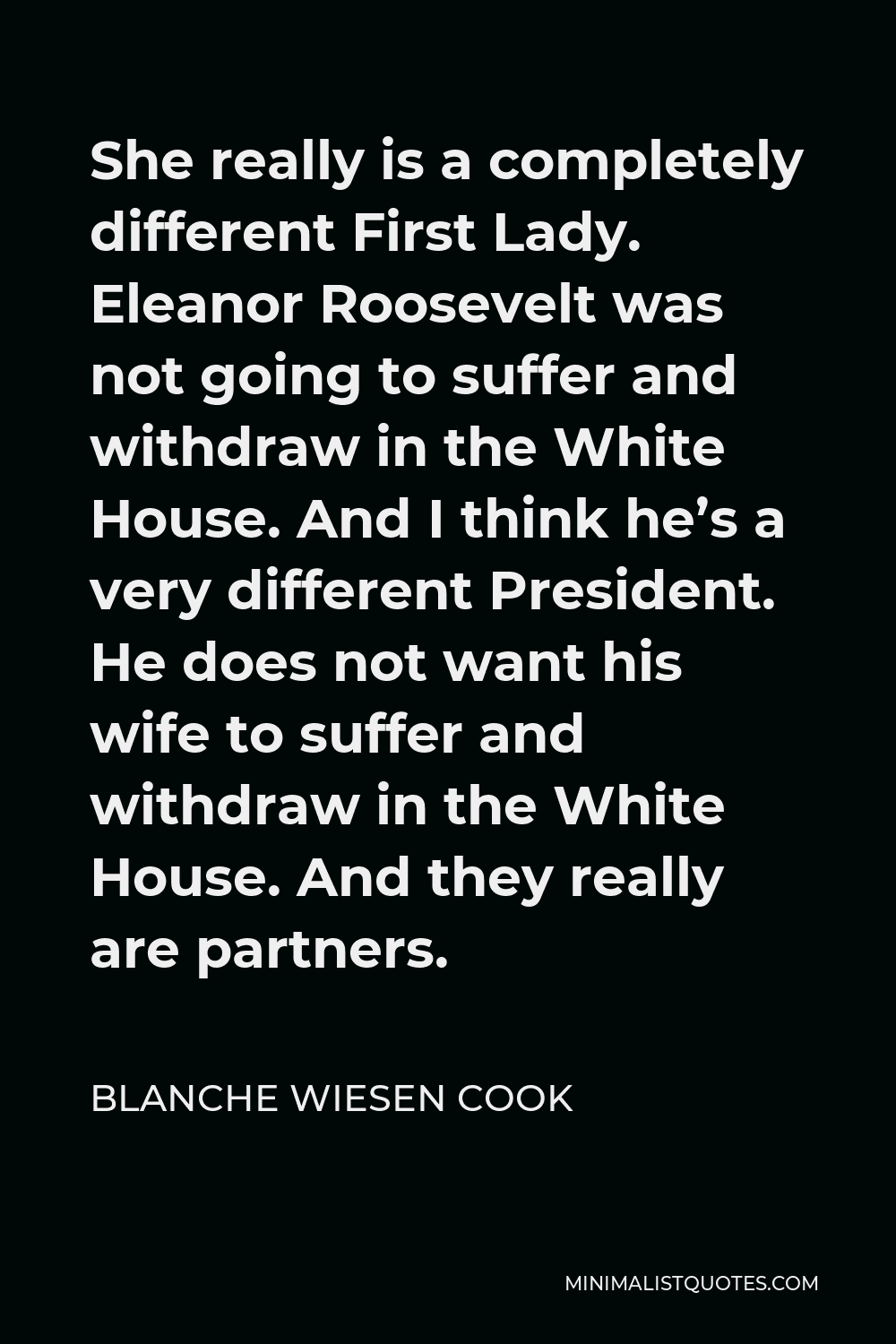
She really is a completely different First Lady. Eleanor Roosevelt was not going to suffer and withdraw in the White House. And I think he’s a very different President. He does not want his wife to suffer and withdraw in the White House. And they really are partners.
BLANCHE WIESEN COOK -





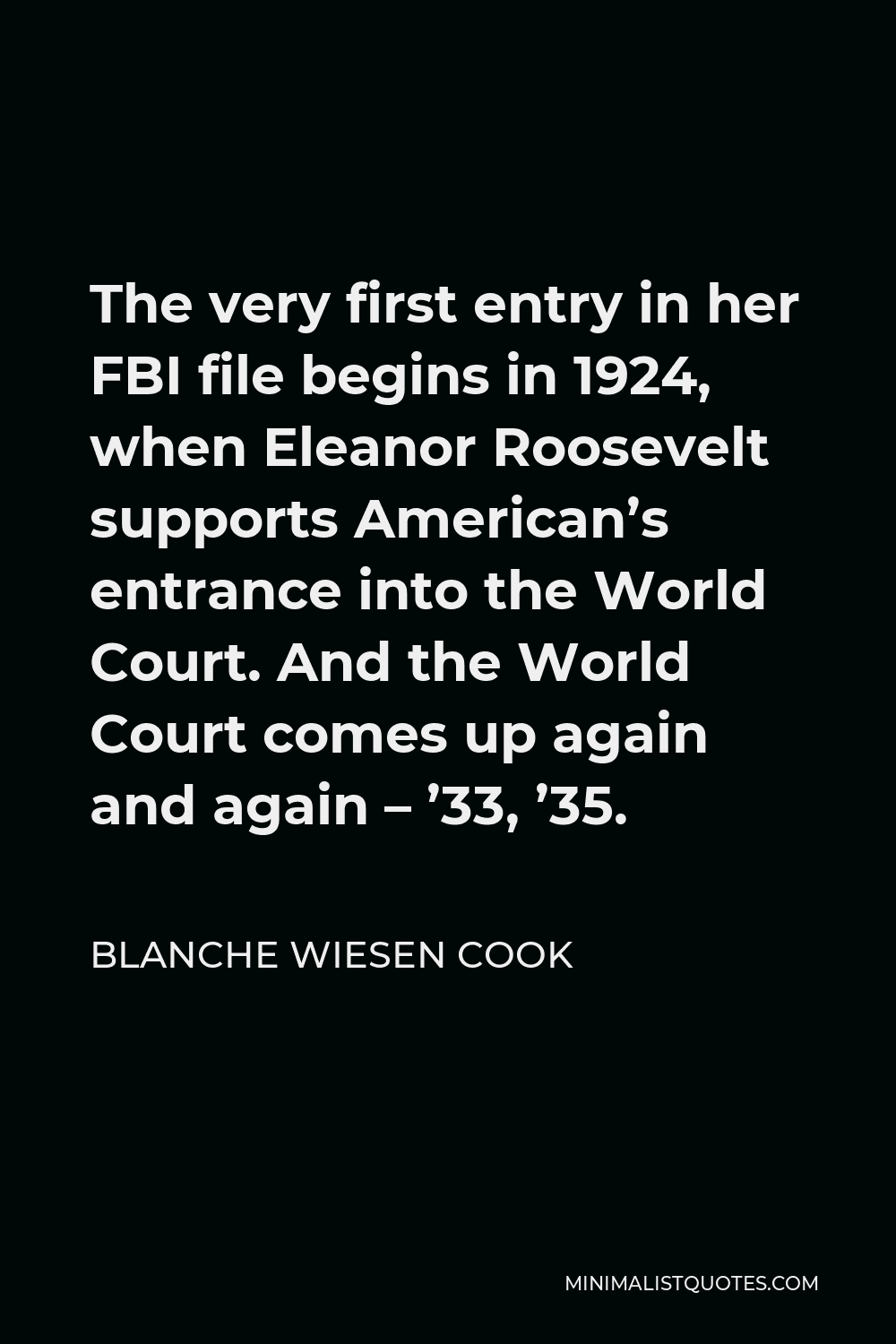
The very first entry in her FBI file begins in 1924, when Eleanor Roosevelt supports American’s entrance into the World Court. And the World Court comes up again and again – ’33, ’35.
BLANCHE WIESEN COOK -






I think FDR was very dashing and charming and debonair, and probably reminded her of her father. A great bon-vivant. He loved to party.
BLANCHE WIESEN COOK -





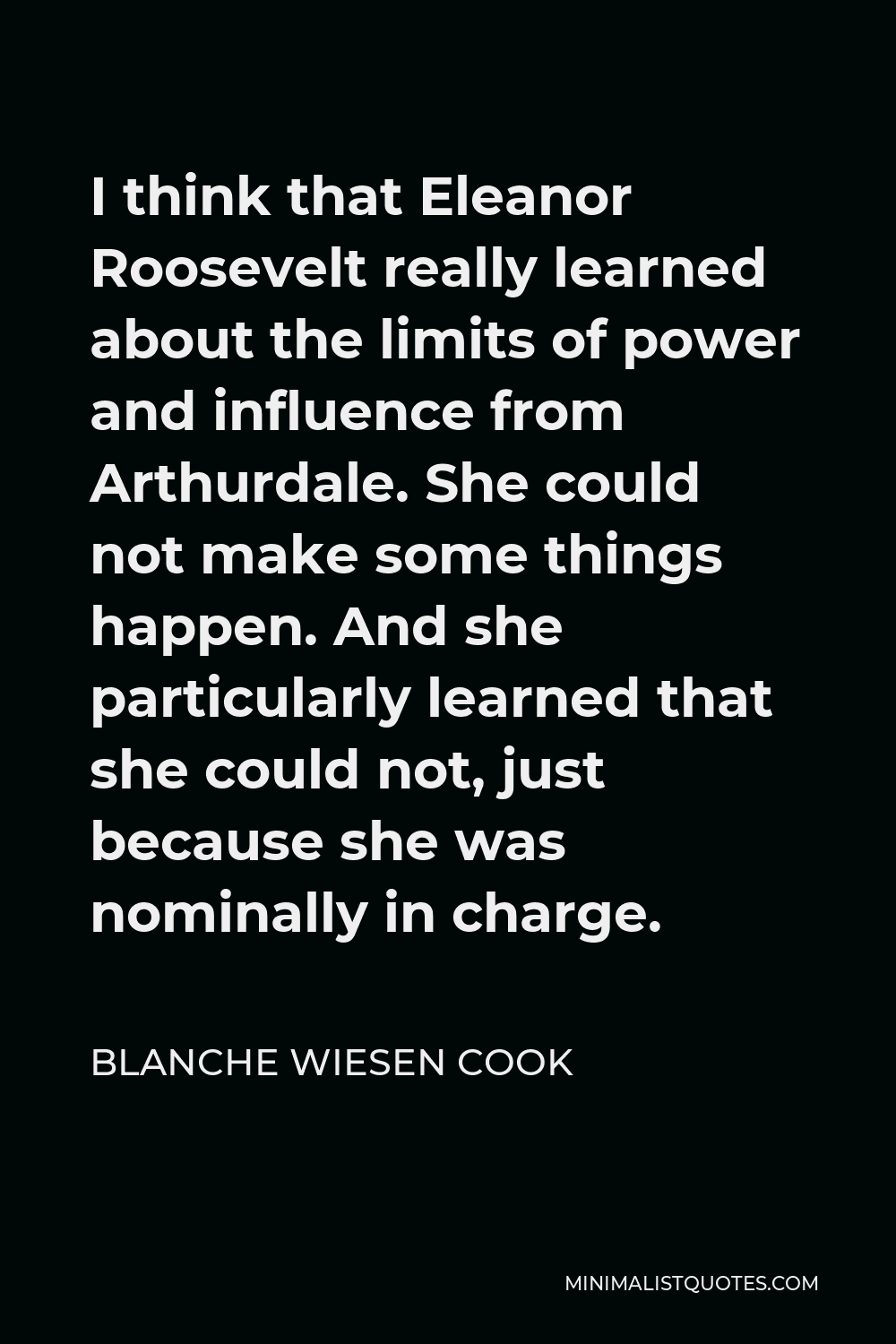
I think that Eleanor Roosevelt really learned about the limits of power and influence from Arthurdale. She could not make some things happen. And she particularly learned that she could not, just because she was nominally in charge.
BLANCHE WIESEN COOK -





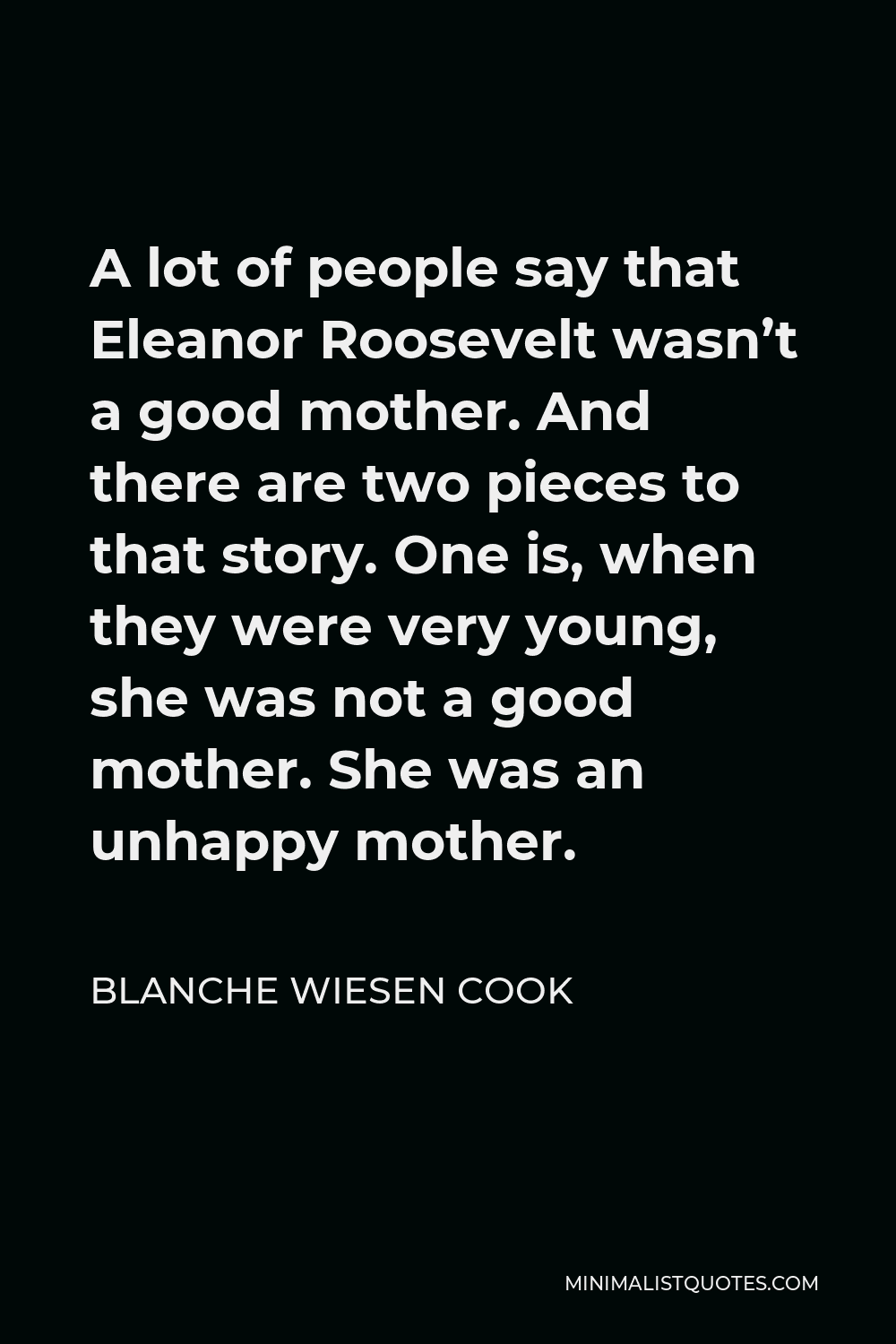
A lot of people say that Eleanor Roosevelt wasn’t a good mother. And there are two pieces to that story. One is, when they were very young, she was not a good mother. She was an unhappy mother.
BLANCHE WIESEN COOK -





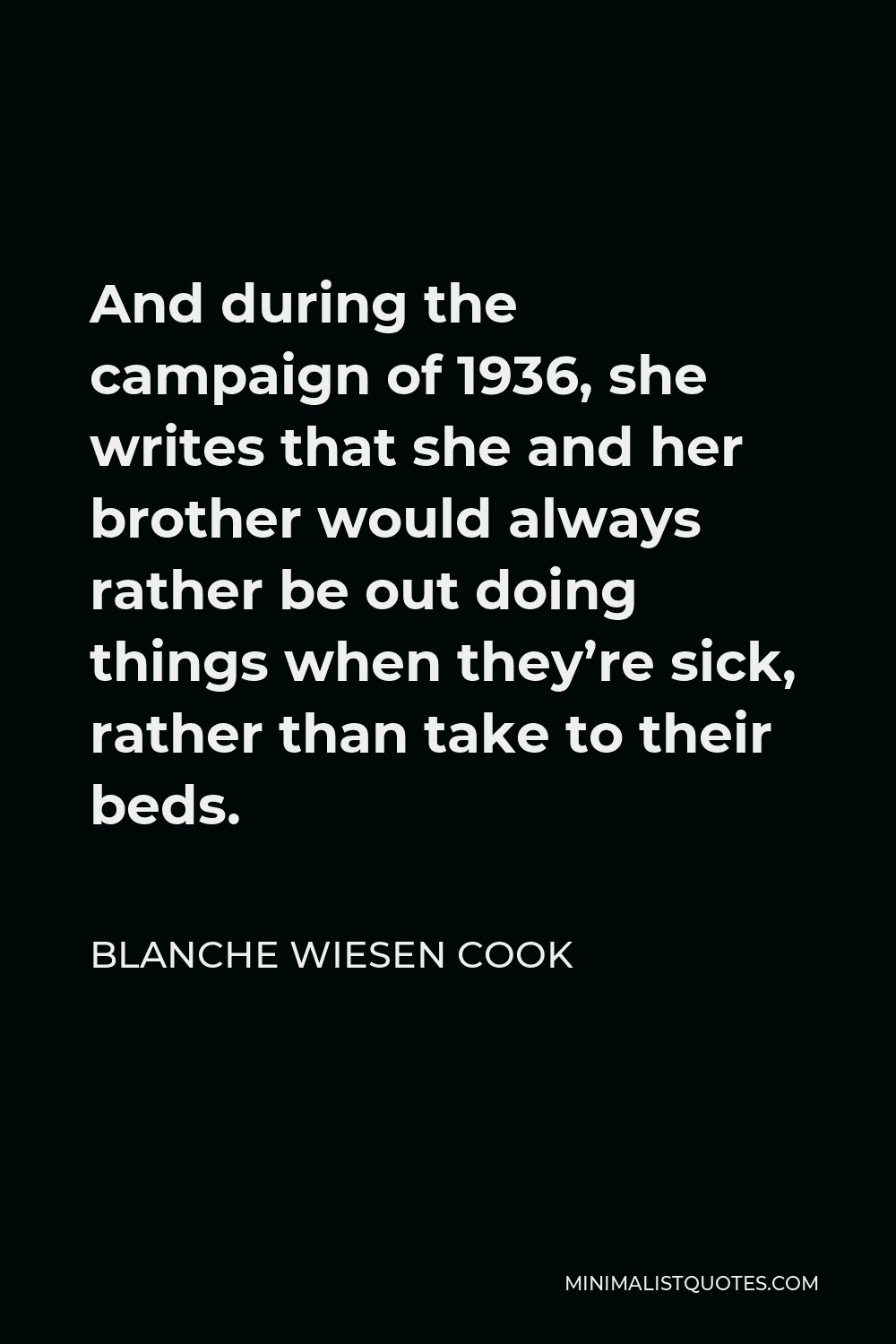
And during the campaign of 1936, she writes that she and her brother would always rather be out doing things when they’re sick, rather than take to their beds.
BLANCHE WIESEN COOK -





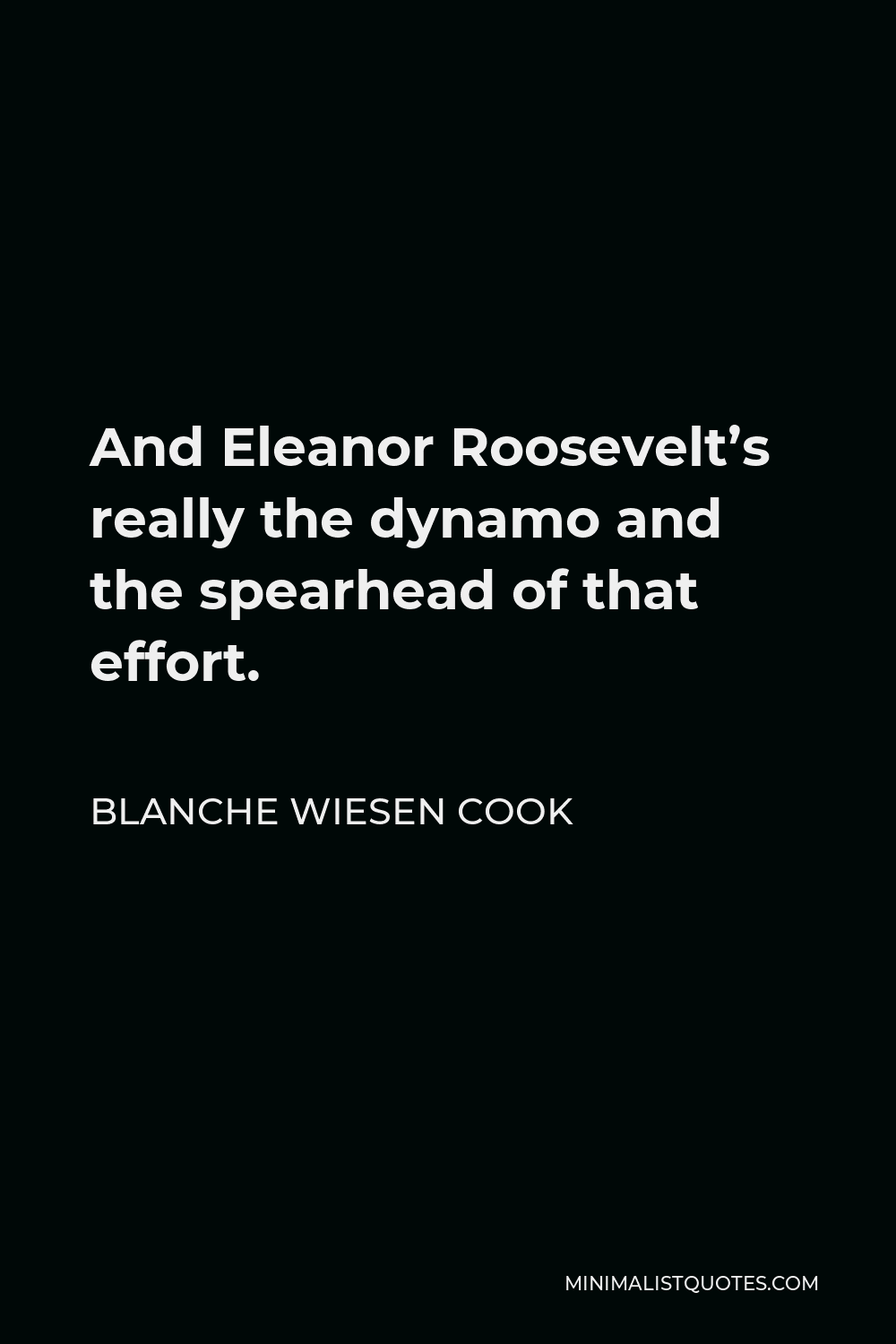
And Eleanor Roosevelt’s really the dynamo and the spearhead of that effort.
BLANCHE WIESEN COOK -






Eleanor Roosevelt doesn’t ever do anything that is going to hurt her husband. She tries things out on him. She gets permission to do things.
BLANCHE WIESEN COOK -





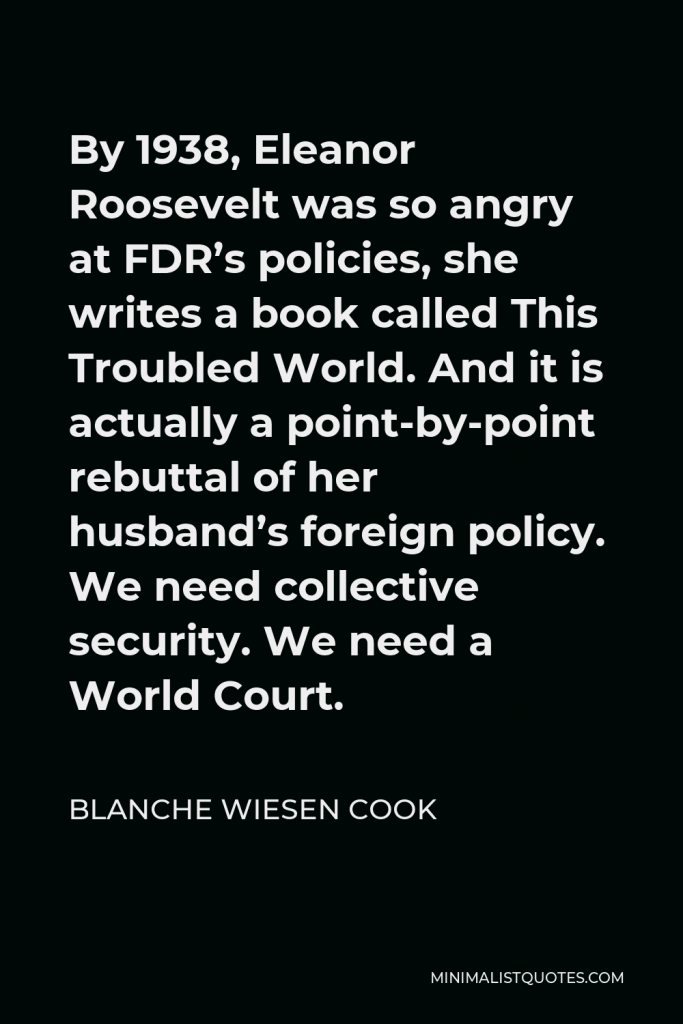

By 1938, Eleanor Roosevelt was so angry at FDR’s policies, she writes a book called This Troubled World. And it is actually a point-by-point rebuttal of her husband’s foreign policy. We need collective security. We need a World Court.
BLANCHE WIESEN COOK -





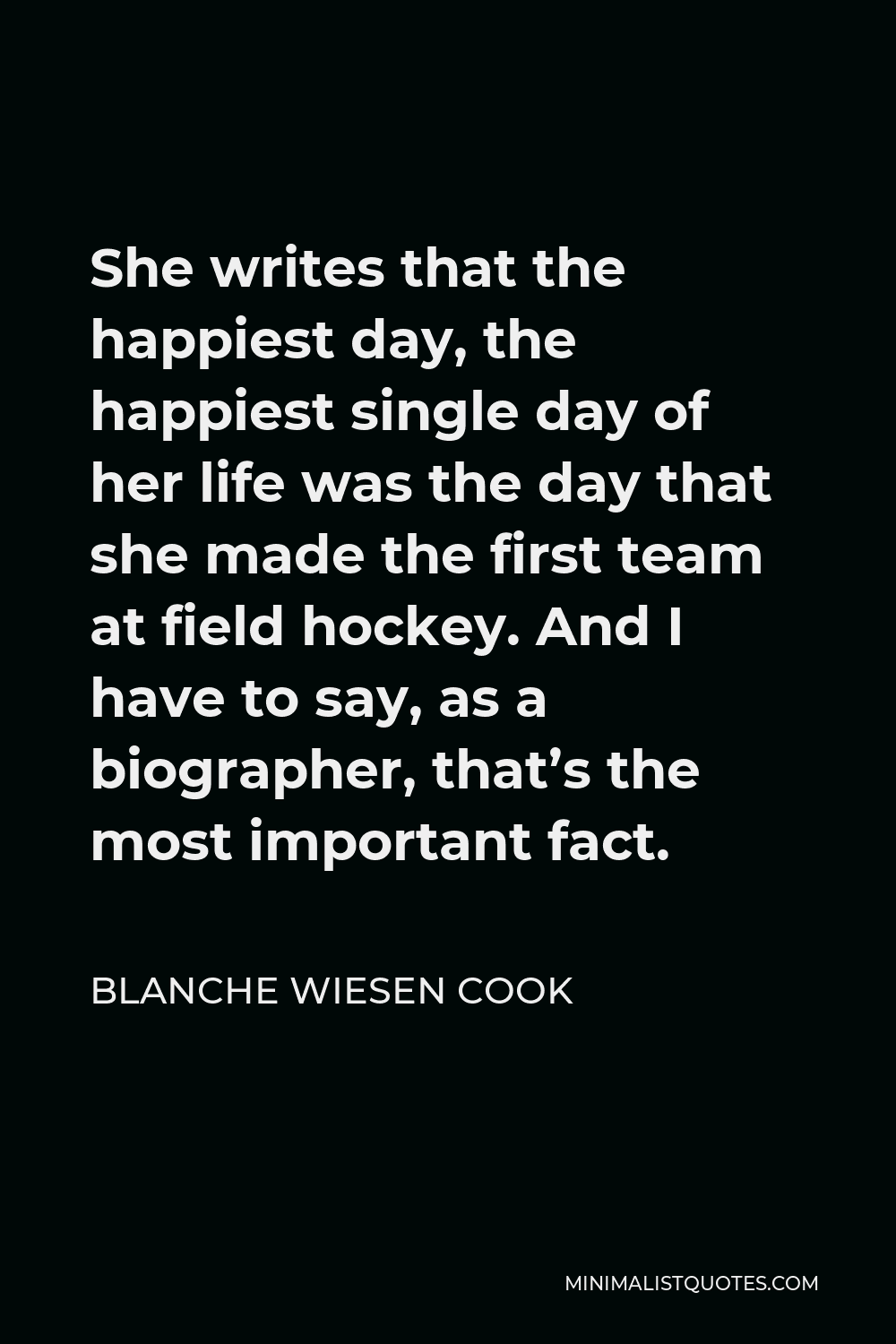
She writes that the happiest day, the happiest single day of her life was the day that she made the first team at field hockey. And I have to say, as a biographer, that’s the most important fact.
BLANCHE WIESEN COOK -





![Blanche Wiesen Cook Quote - But it’s also the beginning of another level of liberation for her]Eleanor Roosevelt], because when she returns to New York, she gets very involved in a new level of politics.](https://minimalistquotes.com/images/but-its-also-the-beginning-of-another-level-of-lib.jpg)
But it’s also the beginning of another level of liberation for her]Eleanor Roosevelt], because when she returns to New York, she gets very involved in a new level of politics.
BLANCHE WIESEN COOK -





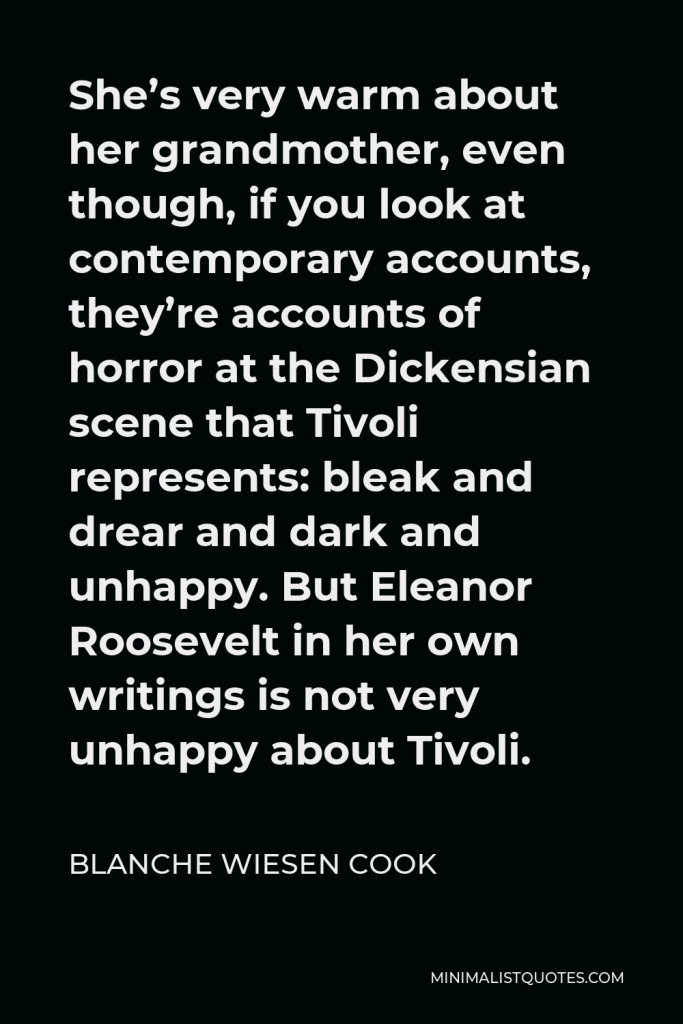

She’s very warm about her grandmother, even though, if you look at contemporary accounts, they’re accounts of horror at the Dickensian scene that Tivoli represents: bleak and drear and dark and unhappy. But Eleanor Roosevelt in her own writings is not very unhappy about Tivoli.
BLANCHE WIESEN COOK -





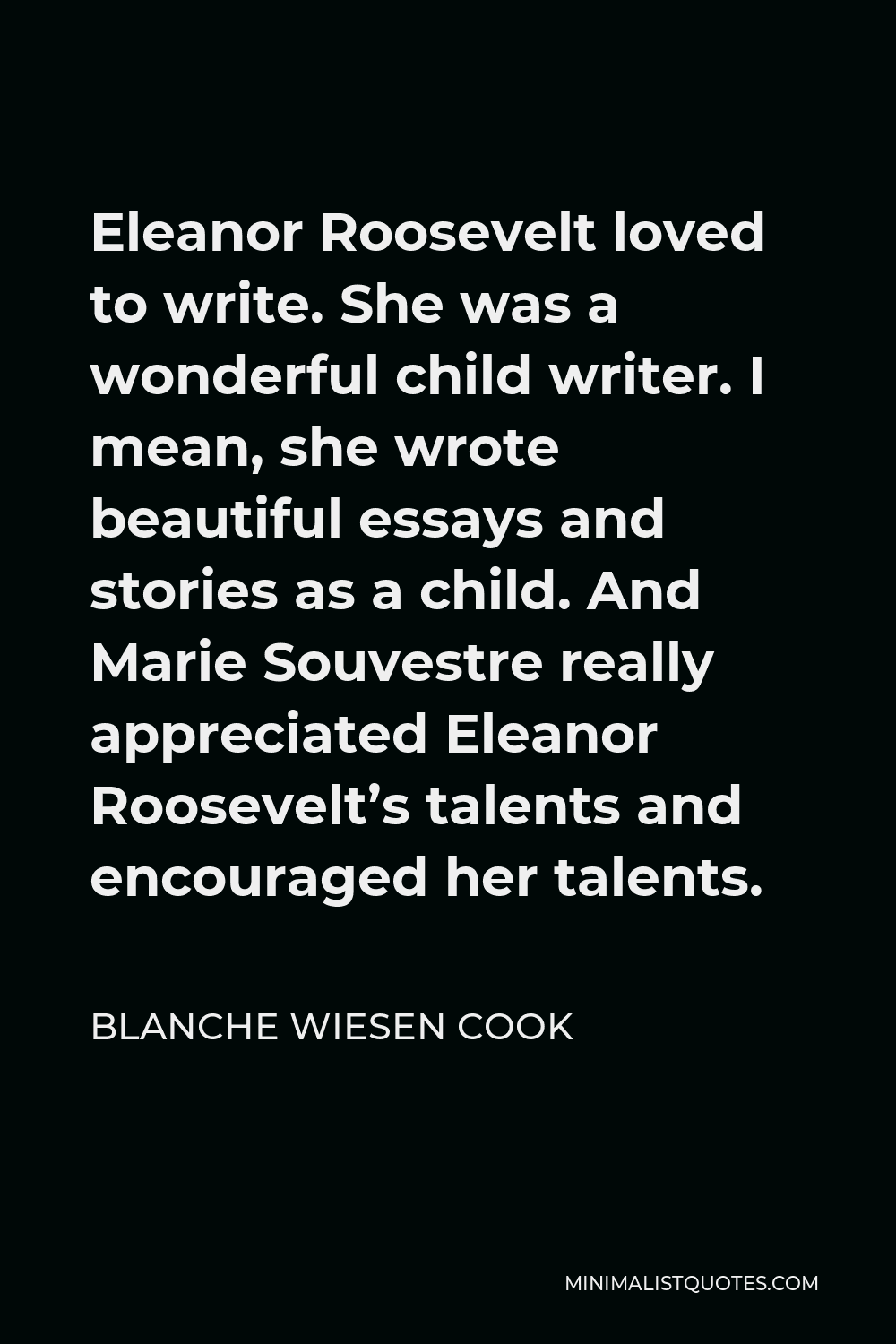
Eleanor Roosevelt loved to write. She was a wonderful child writer. I mean, she wrote beautiful essays and stories as a child. And Marie Souvestre really appreciated Eleanor Roosevelt’s talents and encouraged her talents.
BLANCHE WIESEN COOK -





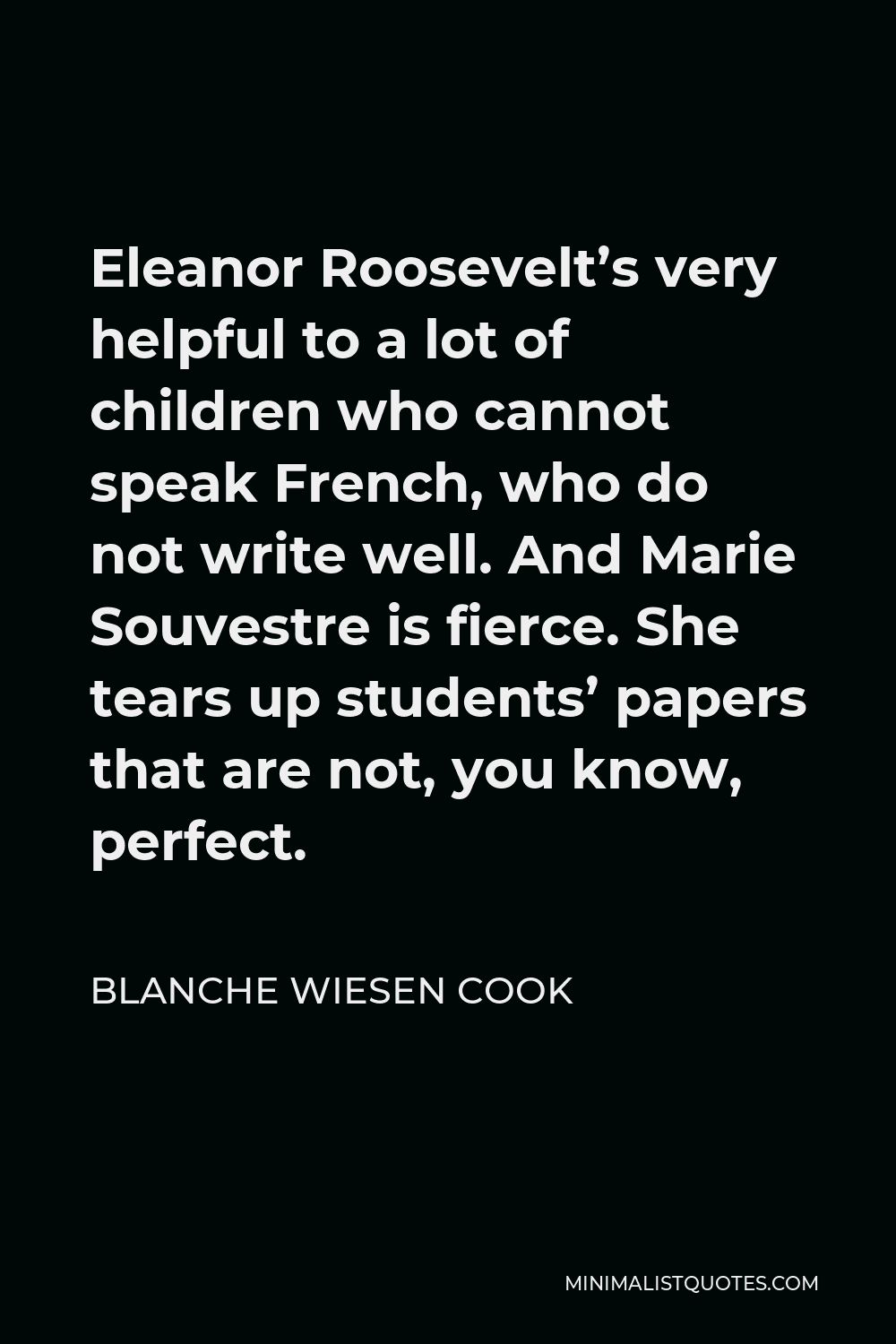
Eleanor Roosevelt’s very helpful to a lot of children who cannot speak French, who do not write well. And Marie Souvestre is fierce. She tears up students’ papers that are not, you know, perfect.
BLANCHE WIESEN COOK
![Blanche Wiesen Cook Quote - And in her [Eleanor Roosevelt] letters, she writes the most, you know, fanciful letters: when we are together, and when we are reunited, and you know,](https://minimalistquotes.com/images/and-in-her-eleanor-roosevelt-letters-she-writes-th.jpg)
![Blanche Wiesen Cook Quote - And in her [Eleanor Roosevelt] letters, she writes the most, you know, fanciful letters: when we are together, and when we are reunited, and you know,](https://minimalistquotes.com/images/grey-and-in-her-eleanor-roosevelt-letters-she.jpg)
![Blanche Wiesen Cook Quote - And in her [Eleanor Roosevelt] letters, she writes the most, you know, fanciful letters: when we are together, and when we are reunited, and you know,](https://minimalistquotes.com/images/blue-and-in-her-eleanor-roosevelt-letters-she.jpg)
![Blanche Wiesen Cook Quote - And in her [Eleanor Roosevelt] letters, she writes the most, you know, fanciful letters: when we are together, and when we are reunited, and you know,](https://minimalistquotes.com/images/red-and-in-her-eleanor-roosevelt-letters-she.jpg)
![Blanche Wiesen Cook Quote - And in her [Eleanor Roosevelt] letters, she writes the most, you know, fanciful letters: when we are together, and when we are reunited, and you know,](https://minimalistquotes.com/images/brown-and-in-her-eleanor-roosevelt-letters-she.jpg)
![Blanche Wiesen Cook Quote - And in her [Eleanor Roosevelt] letters, she writes the most, you know, fanciful letters: when we are together, and when we are reunited, and you know,](https://minimalistquotes.com/images/white-and-in-her-eleanor-roosevelt-letters-she.jpg)

